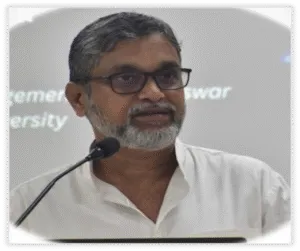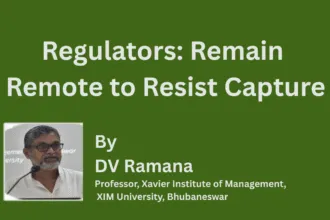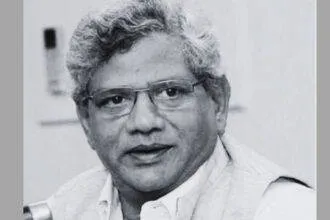Reliance Jio’s decision to provide income tax return (ITR) filing service is being discussed in the media as a step toward making life of a common person digitally more comfortable. However, a deeper examination reveals different implications. It threatens thousands of chartered accountants (CAs), law graduates, and tax practitioners with impending job loss. It also poses serious risks to the financial privacy of Indian citizens.
The latest move by Jio is not merely a service expansion. It is a calculated strategy to enter the regulated domain traditionally managed by skilled professionals. If remain unchecked, it may lead to the monopolization of professional services. It may weaken the relevance of professionals such as chartered accountants (CAs), law graduates, and other consultants.
Displacement of Professionals
India produces thousands of CAs and law graduates annually. Tax filing is a primary source of income for most of the young legal and accounting professionals. These professionals interpret tax laws, advise on deductions, and handle several mundane compliance matters. They act as advisors for the entire family rather than just a single tax filer. This may change with Jio entering this space. In no time, Jio will capture the market with its aggressive pricing strategy. Reliance is known for using a predatory pricing strategy in the past. Due to its deep pockets and strong balance sheet, Jio may not hesitate to offer certain services for free to entice customers and capture the market entirely.
From Market Expansion to Monopoly
Reliance already dominates key sectors like telecom, e-commerce, digital payments, and entertainment. Now, by entering tax services it will be consolidating control over one of the most sensitive aspects of a citizen’s life: their financial data. This isn’t selling convenience; it is about exerting control over every aspect of human life. Tax filing is not a consumer product. It’s a legal obligation tied to privacy, governance, and accountability. Allowing a single corporate entity to facilitate the tax filing process weakens the system’s independence and confidentiality.
The question is not whether Jio can file tax returns. It’s whether we should allow critical public processes to be taken away by large profit driven private corporate entity at the expense of professionals, data security, and democratic decentralization. (Prof. Ramana)
The Data Privacy Dilemma
The Digital Personal Data Protection Act, 2023 is still evolving in India. It lacks sufficient safeguards and still contains several ambiguities in the very definition of the term “public interest.” It offers limited protection against potential data misuse by powerful corporate actors. In such a scenario, entrusting citizens’ financial data to a large corporate entity is risky and potentially dangerous.
The unchecked entry of a corporate giant into a professional domain should not be dismissed as just another market innovation. The Competition Commission of India (CCI), the Institute of Chartered Accountants of India (ICAI), the Central Board of Direct Taxes (CBDT), and data protection bodies must scrutinize such moves with greater urgency. The regulatory silence on such an important development is not in the best interest of the people.
A Better Alternative: Empower Local Colleges, Not Corporations
It is time for the government and other regulatory bodies to create an innovative alternative. Government should pursue a more inclusive and decentralized model for IT filing. One such model that can be designed is by empowering the commerce colleges and universities to provide the tax filing service. Let it be a nationwide initiative where colleges assist individuals in filing tax returns. Under faculty supervision and in collaboration with certified professionals, commerce students can be trained to offer guided support during tax season.
This model would yield transformative outcomes:
- Skill development: Students will get opportunity to develop an important financial skill working hands-on tax laws and tax filing.
- Employment generation: Colleges may emerge as local employment providers for new graduate by leveraging the expertise of CAs and tax experts as mentors, trainers, or consultants.
- Public trust: Local citizens taking the help of college teachers and the local professional get opportunity to interact with real people. This will make the IT filing system more humane.
- Data security: A decentralized system with oversight from educational institutions and local authorities, is far less vulnerable to misuse than a profit-driven corporate platform.
To create such a nation wide decentralized system, state governments need to play a proactive role in developing the necessary IT infrastructure. States could channelize Corporate Social Responsibility (CSR) funds from local corporate entities to build digital infrastructure in colleges.
This would not only go a long way in ensuring data privacy but also revitalize colleges as vibrant economic and academic hubs. College will get opportunity to connect education with real-world impact and community service. Moreover, by involving colleges and universities in the tax filing eco-system, governments can strengthen public institutions, empower local youth, and create a trusted, community-based service model.
The way forward
The question is not whether Jio can file tax returns. It’s whether we should allow critical public processes to be taken away by large profit driven private corporate entity at the expense of professionals, data security, and democratic decentralization.
We as Individuals, too have a role to play in creating such a democratic alternative. We must recognize the long-term costs of abandoning our trusted finance and tax advisors for low-cost digital offers. Chartered accountants, tax consultants, and legal advisors bring context, accountability, and personal engagement that no algorithm can replace. Supporting them is not just about preserving their livelihoods, but it is preserving trust and the human touch in financial decision-making. let us invest in models that strengthen communities, support professionals, and keep public services in public hands.
DV Ramana
An ordinary citizen of India

Professor, Xavier Institute of Management, XIM University, Bhubaneswar
Comments
0 comments







